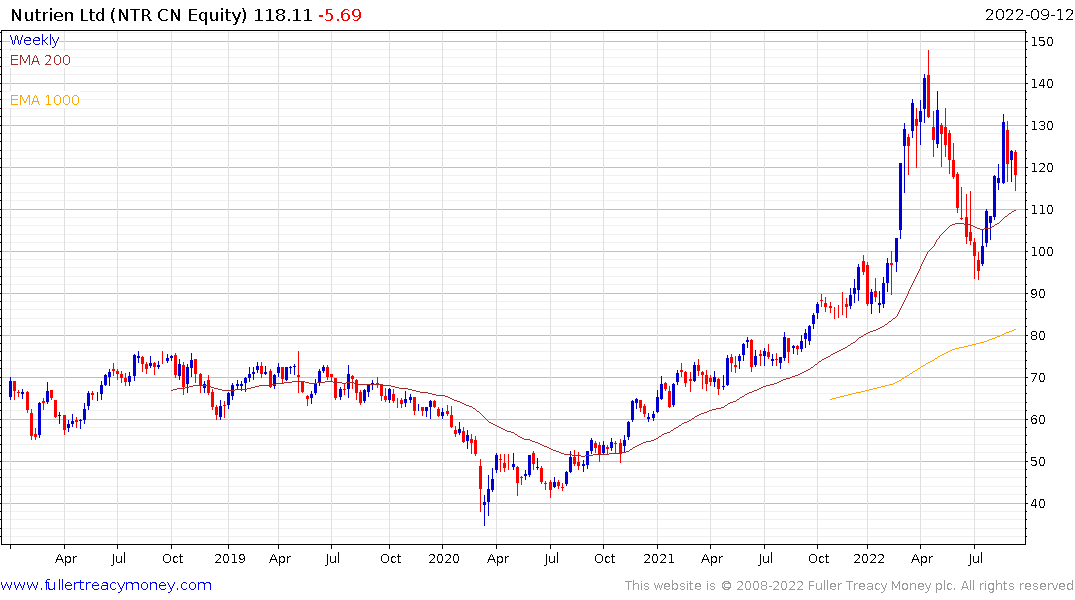Crop Prices Touch Two-Month High as Food Supply Concerns Mount
This article from Bloomberg may be of interest to subscribers. Here is a section:
A US crop report Monday showed a surprisingly large cut in the country’s soybean stockpiles following a hot and dry summer. Drought also is sinking the French corn harvest to its smallest in three decades and has curbed sugar supplies from South America.
“The damage has been done,” said Peter Collier, market analyst at UK-based CRM AgriCommodities. “It’s now beginning to be quantified.”
The weather challenges, combined with Russian President Vladimir Putin’s recent criticism of the Black Sea crop-export deal, highlight how fragile global supplies are. The Bloomberg Agriculture Spot Index, which tracks crops including wheat, sugar and soy, climbed for a second straight day Tuesday to its highest level since late June.
From 2002 to 2008 there were concerns the world was heading toward peak oil. That created a boom in biofuels which created a new source of demand for food commodities like corn, sugar and palm oil. Prices spiked and the world decided maybe it wasn’t such a good idea to rely on food for fuel.
Today’s surge in prices is not because of biofuel demand. Instead, urbanites have decided it is better to not grow food because farmers should be custodians of the land. Maximising yields increases carbon emissions and that’s bad according to this reasoning. Meanwhile, droughts and water resource mismanagement are a separate issue.
The twin challenges of wrong-headed agriculture policy and long-term water stresses are supporting prices at a higher plateau and the supply situation is fragile as a result. The biggest issue for the future is the prospect of early snow melt in Alpine regions. This article focusing on snowmelt patterns in the Swiss Alps suggests shorter winters and less snow accumulation on aggregate. That robs major rivers of their water. California’s snowpack is experiencing a similar pattern and the stresses on the Colorado river basis are also well publicized. While it is true that shorter winters elongate the growing season, the availability of snow melt as the basis for river systems could have a major disruptive effect on traditional growing areas.

Fertilisers will therefore continue to be in demand as farmers attempt to maximise yields where possible. Nutrien, for example, is rolling out networks of sensors with 1/10th of an acre accuracy to monitor moisture and fertilizer requirements. In doing so they are creating efficiencies for farmers that enhance yields and lower overall costs. The share continues to hold within the recent range. If the wider market continues to roll over fertiliser companies will not be immune but they may be among the first to bounce.


